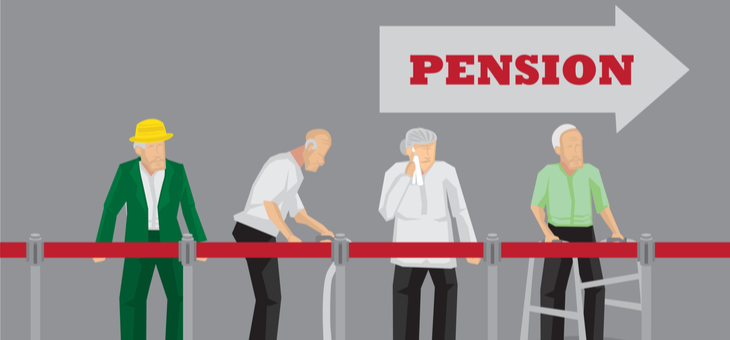More Australians will be reliant on pensions to fund their retirement unless the Australian economy rebounds quickly from the recession.
The Association of Superannuation Funds of Australia (ASFA) predicts 41 per cent of people reaching retirement age in 2023 will be fully self-funded, down from 43 per cent before the pandemic.
“This means about 5000 more people will be relying on government support through the pension or part-pension than previously forecast,” reports The Age.
ASFA chief executive Martin Fahy said the reduction in expected numbers of self-funded retirees underlined the importance of maintaining the planned increase in the superannuation guarantee from the current 9.5 per cent rate to 12 per cent.
“ASFA projects that moving Australia’s superannuation system to 12 per cent superannuation guarantee would see half of all retirees self-funded in their retirement by 2050,” Mr Fahy said.
“The move to a 12 per cent superannuation guarantee is now critical for pre-retirees, and for generations to come, to achieve a dignified retirement.
“If today’s young people are to avoid ending up on not much more than the Age Pension, every single dollar contributed to superannuation counts.”
A major conflict – dubbed the Super Wars by Nine – is brewing over the guarantee increase.
On one side, business groups, the Australian Council of Social Service, the Grattan Institute think tank, the Reserve Bank, many economists and up to a dozen coalition MPs oppose the increase, worried that forcing employers to contribute more to their employees’ super funds will deter wages growth and hinder economic recovery.
The Labor Party, superannuation funds, former treasury secretary Ken Henry and former prime ministers Paul Keating, Kevin Rudd and Malcolm Turnbull say wages may not rise regardless and the guarantee increase is crucial to ensure Australians have adequate retirement funding.
Industry Super chief executive Bernie Dean claims the very existence of super is at stake.
ASFA says Australians needed the following amounts in super to be heading for a comfortable retirement:
- a 30-year-old should have $61,000
- a 40-year-old $154,000
- a 50-year-old $271,000
- a 60-year-old $430,000.
These amounts are to achieve a comfortable retirement at age 67 when singles should have $545,000 in retirement savings and couples $640,000, it says.
“That equates to an annual pre-tax income of $65,000 with investment returns at 6.7 per cent,” the Herald Sun reports.
“A comfortable retirement enables a healthy retiree to have a good standard of living including top level private health insurance, travel on domestic and international holidays, own a reasonable car and have a good internet service and mobile phone allowance.”
Currently, the full Age Pension for a single person is $24,552 a year.
Surprise changes in the recent Federal Budget aim to reduce unnecessary fees from multiple super accounts. Employers are now required to find your account through the ATO and pay your super into your existing account unless you choose another one.
There are also plans to introduce a new comparison tool YourSuper, which ranks funds by fees and returns.
Superannuation was aimed at supplementing the Age Pension, providing a more comfortable lifestyle for retirees and easing pressure on the budget.
But increasing the rate of compulsory superannuation will further weaken the economy at a time when it is ailing because of the effects of the pandemic.
Be super wise (Source: Sydney Morning Herald)
- locate any lost super at the Australian Taxation Office
- consolidate multiple accounts
- log in to your account and check your balance and fees
- avoid getting ripped off by super fees
- assess your superannuation insurance premiums.
Is your superannuation enough to retire on?
If you enjoy our content, don’t keep it to yourself. Share our free eNews with your friends and encourage them to sign up.
Related articles:
https://www.yourlifechoices.com.au/finance/superannuation/super-fund-thats-tops-for-satisfaction
https://www.yourlifechoices.com.au/finance/superannuation/call-to-boost-retirement-savings
https://www.yourlifechoices.com.au/government/federal-government/labor-to-block-super-changes

